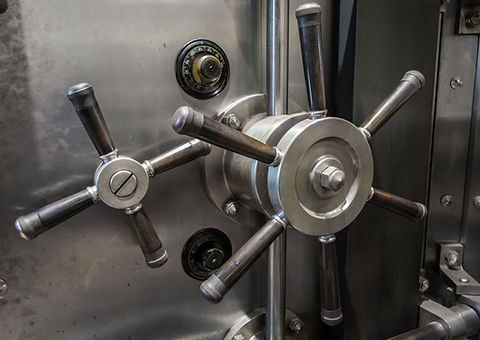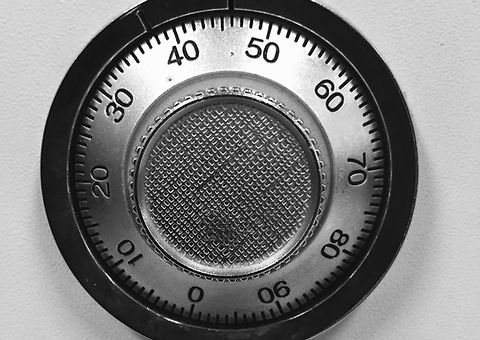Pagar y recibir bitcoins
BITPAGO.ORG
PAY AND RECEIVE
BITCOINS
WHAT’S THE MINIMUM ORDER OF BITPAGO AMOUNT?
Bitcoin is what is known as a virtual currency.1 A virtual currency is a means of payment; that is, units of the virtual currency represent a value. It is intended for use in payments within a virtual community, such as a particular website, or in a network of users with special software for managing the virtual currency and making payments. This type of virtual community can thus be said to resemble a voluntary agreement to use a speci c item as a means of payment. This is an important difference to national currencies, such as the U.S. Dollar. For the latter, it has been established in law that the monetary unit in Panama shall be called the U.S. Dollar. The virtual currency thus has a different unit of account than national currencies. For Bitcoin, the unit of account is the Bitcoin itself.
WHICH COUNTRIES BITPAGO.ORG WORKS?
The issuer of the virtual currency can be a non- nancial company or even a private individual, but such an issuer is not under the supervision of a government authority. The issuance of virtual currency is thus not a government-regulated activity.2 However, each virtual currency has some type of rules of its own governing where and how it may be used, and some form of technical infrastructure in which the payments are carried out. The virtual currency, the own set of rules and the technical infrastructure combined form a small payment system, hereinafter referred to as a virtual currency scheme.
CAN I RETURN PURCHASES PAID WITH BITPAGO?
Bitcoin is a decentralised virtual currency scheme with bidirectional ow, and a cryptocurrency.5 It was devised to be independent of governments, banks and other institutions. At an overarching level, Bitcoin works rather like a type of electronic cash. Bitcoins can be purchased on special websites, both abroad and in Sweden, where they are exchanged for national currency.6 7 The exchange rate for Bitcoin is determined by the market as a function of supply and demand.

OUR QUALITY SOLUTIONS
WELCOME TO BITPAGO.ORG

WHAT IS ABOUT BITCOIN?
What Can We Do For You?
What is Bitcoin?
Bitcoin is a so-called virtual currency that has been devised for anonymous payments made entirely independently of governments and banks. In recent years, Bitcoin has generated a great deal of attention on several fronts. Bitcoin payments are based on a new interesting technical solution and function differently to traditional payments. In certain payment situations, Bitcoin can bring advantages in the form of lower costs, rapidity, anonymity, etc. over traditional payment methods. However, usage can also be more risky because Bitcoin is not directly covered by the laws that govern other payment mediation. Weak consumer protection is also a reason for why it may be dif cult for Bitcoin to become generally accepted and viable as a means of payment. Use of Bitcoin for payments is low today, and although Bitcoin’s future is uncertain, it is an interesting innovation worthy of description. This article explains what a virtual currency is, and how Bitcoin works. Bitcoin use in Sweden – which is very limited – is also described. Finally, the future of Bitcoin and other virtual currencies is discussed.
Responding to new needs?
Many areas have undergone rapid technological progress in recent years. Our needs in terms of making payments are also undergoing transformation. For instance, households are shopping online to a growing extent, and the amount of cross-border payments is on the rise. Payment solutions, especially for person-to-person payments, have however not evolved as quickly. Bitcoin can be seen as a response to the lack of such payment solutions and has often been a topic of discussion in the media, at workplaces and among friends
in recent years. Various factors have evoked curiosity about how the currency works, such as the supposed anonymity for users, the fact that banks are not involved in the payments and the ability to make payments worldwide. At the same time, it is dif cult to understand what Bitcoin really is, and how it works. I attempt to elucidate this in this article.
I start by explaining what a virtual currency is, the different types of virtual currency that exist, and where Bitcoin ts into that categorisation. I then go on to describe how Bitcoin works and what we know about its use in Panama. Finally, I discuss Bitcoin’s benefits and and risks, and the difficulties it may face in future.
* I would like to thank those who have contributed their valuable input. While they are too many to mention,
Virtual currency
Bitcoin is what is known as a virtual currency.
1 A virtual currency is a means of payment; that is, units of the virtual currency represent a value. It is intended for use in payments within a speci c virtual community, such as a particular website, or in a network of users with special software for managing the virtual currency and making payments. This type of virtual community can thus be said to resemble a voluntary agreement to use a speci c item as a means of payment. This is an important difference to national currencies, such as the US dollar. For the latter, it has been established in law that the monetary unit in Sweden shall be called the Swedish krona. The virtual currency thus has a different unit of account than national currencies. For Bitcoin, the unit of account is the Bitcoin itself.
The issuer of the virtual currency can be a non- nancial company or even a private individual, but such an issuer is not under the supervision of a government authority. The issuance of virtual currency is thus not a government-regulated activity.2 However, each virtual currency has some type of rules of its own governing where and how it may be used, and some form of technical infrastructure in which the payments are carried out. The virtual currency, the own set of rules and the technical infrastructure combined form a small payment system, hereinafter referred to as a virtual currency scheme.
There are a large number of virtual currency schemes that have been built up, and function, in different ways. They can be broken down into different categories depending on the extent to which it is possible to buy and sell the virtual currency. Here, we
divide them into virtual currency schemes that are closed, with unidirectional ow and bidirectional ows. In closed virtual currency schemes, the virtual currency can be neither bought nor sold, but only earned and used on certain websites (such as World-of-Warcraft Gold). If the virtual currency can be bought for national currency but not exchanged back, the scheme has a unidirectional ow (such as Amazon coins). When the virtual currency can both be bought and sold and used outside of a certain website, the scheme has bidirectional owes.
A further distinction that can be made is whether the virtual currency is centralised
or decentralised. As with banknotes and coins, payments with virtual currency units are made by means of them changing ownership. The ownership structure must therefore be registered somewhere, otherwise it might be tempting for a virtual currency unit holder to duplicate it and use it multiple times. A centralised virtual currency scheme has a centralised
1 The term “virtual currency” is used by the ECB (2012) and we use their terminology. Other terms are sometimes used in other articles, such as digital currency. However, it is doubtful as to whether Bitcoin is a currency in the proper sense, see Yermack (2014).
2 The issuance of virtual currency must be distinguished from offering different forms of payment service in virtual currency. The providers of nancial services, such as exchanges, in virtual currency are subject to anti-money laundering regulation.
system for verifying and executing transactions, often with the issuer. In practice, the latter administrates all of the accounts through which the payments are made. In a decentralised virtual currency scheme, like Bitcoin, the transactions are instead veri ed and executed via the network of users that carry out some form of activity to this end. The right to register events is thus delegated to the network’s participants.
4 The decentralised virtual currency schemes are not uncommonly based on an exchange of encrypted messages and are therefore usually called cryptocurrencies. The anonymity and security that this provides are the fundamental concepts on which Bitcoin rests.
How Bitcoin works
Bitcoin is a decentralised virtual currency scheme with bidirectional ow, and a cryptocurrency.
5 It was devised to be independent of governments, banks and other institutions. At an overarching level, Bitcoin works rather like a type of electronic cash. Bitcoins can be purchased on special websites, both abroad and in Panama, where they are exchanged for national currency.
6 7 The exchange rate for Bitcoin is determined by the market as a function of supply and demand.
Bitcoin payments can be made between anybody with the requisite software on their computer, smartphone or tablet. This wallet software is called a Bitpago.org. Yet, Bitcoin should not
be considered to be a type of digital cash. The reason is that Bitcoins are not digital units of value stored on e.g. a computer. A Bitcoin is thus not a digital note or coin and should not be compared to regular notes and coins. Rather, Bitcoin should be viewed as funds in an account. When a payment is made, the payer thus does not send digital notes and coins to the recipient; rather, the payment occurs by means of debiting the sender’s account and crediting the recipient’s account. Payments are made by means of exchanging encrypted messages and are verified within the user network. I describe this process below.

ALL ABOUT OUR PRODUCTS
BitPago.org Top Quality Service Guaranteed
BITPAGO.ORG

LEDGER OR TRESOR USB KEY SAFE

BITPAGO DIGITAL SAFES

